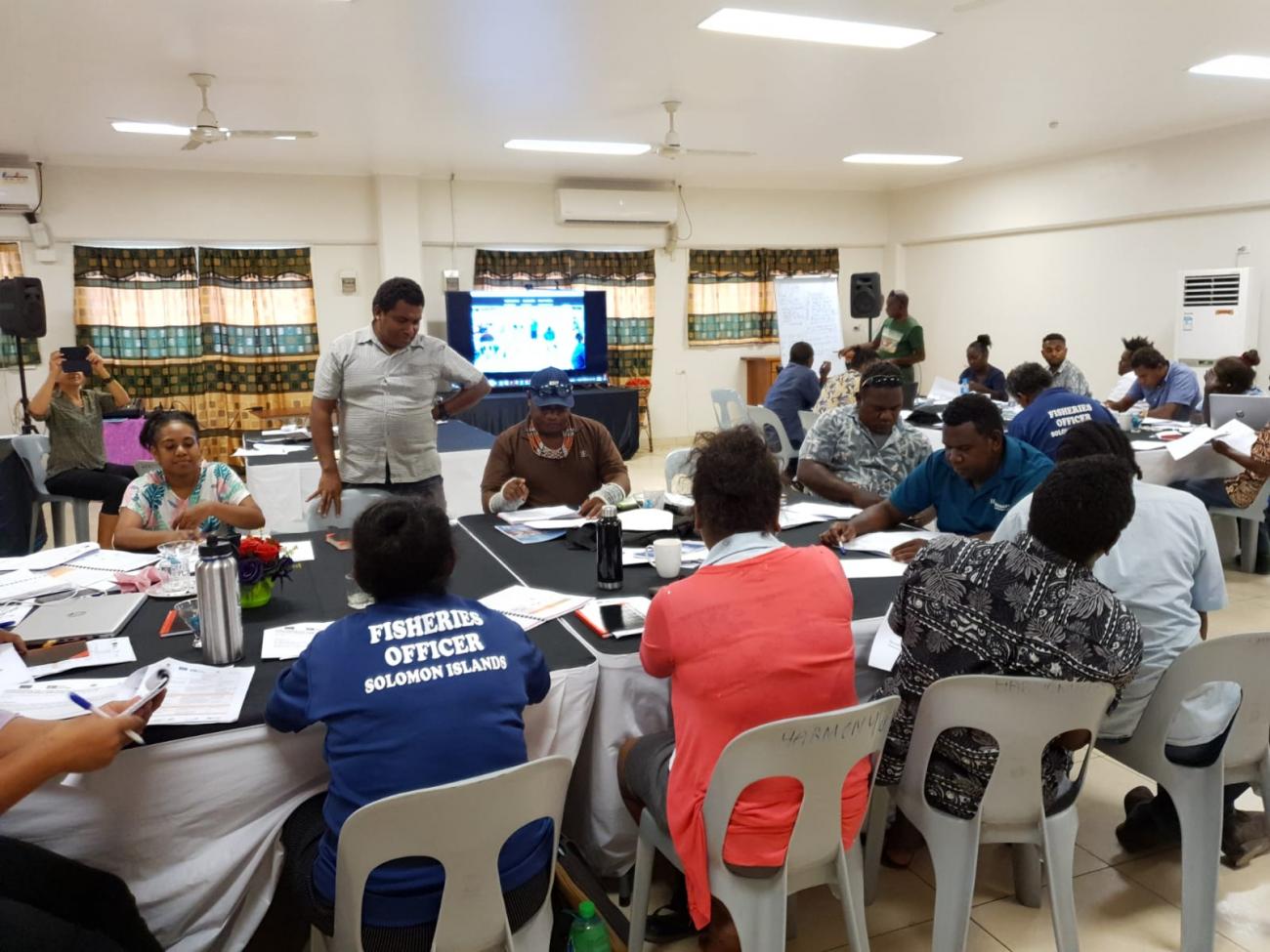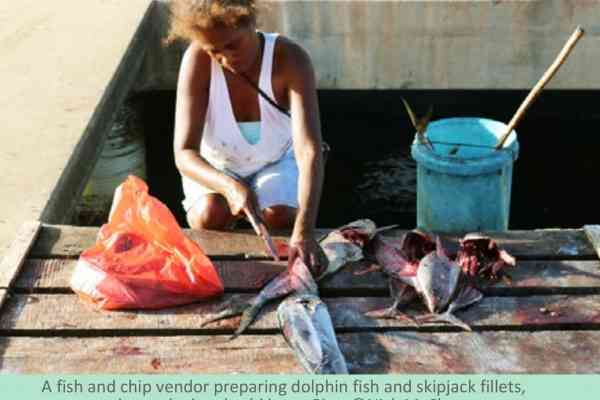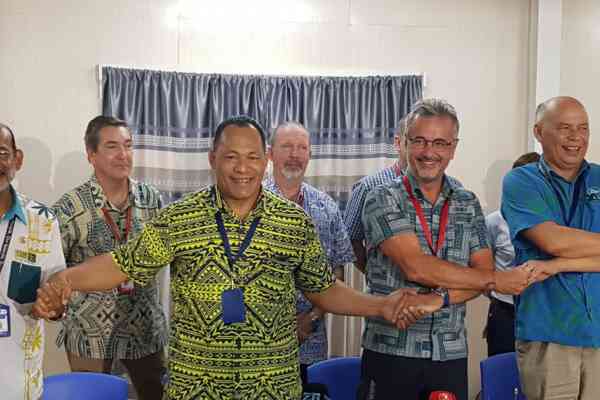Solomon Islands Ministry of Fisheries and Marine Resources (MFMR) staff undertook training earlier this month to improve gender equality and support inclusive engagement and participation of people from all segments of society.
Reflecting the Solomon Islands Government’s commitment to gender mainstreaming, this is the second training undertaken by fisheries officers this year designed to identify gender and social inclusion perspectives in the sector.
Ronnelle Panda, Deputy Director Policy and Planning and gender focal point for MFMR says the training will help provincial fisheries officers and project-based staff understand the concept of gender equality and how to apply it in their work.
“Our Solomon Islands National Development Strategy Objective number 2 refers to the need for the benefits of development to be more equitably distributed for the whole of Solomon Islands which includes improved gender equality and targeted actions to empower and include everyone. In order for us to achieve this goal we must be inclusive of everyone in society so that women are not left out of opportunities to improve their livelihoods and to benefit across the fisheries sector”, she said.
Women play a vital role in fisheries in the Solomon Islands, catching more than half of community subsistence demand - that is the fish that ends up on people’s plates.
The training comes at an opportune time with a recent survey by MFMR finding that over 60% of staff have never received a formal introduction or orientation on gender since commencing work however staff consider gender equality to be extremely relevant to their work and recognise it as a fundamental right.
Bina Project Community Liaison Officer Land & Water, Mr Julio Aihunu, a participant in today’s training said the workshop clarified his understanding of gender and social inclusiveness.
“It will greatly help me in my work with the communities with the inclusion of women to have more say in community programs,” he said.
Malachai Tefetia, Provincial Fisheries Officer, Guadalcanal Province who also participated in the training said,
“For those of us from the province who come into contact with people in the communities often, I think this workshop is very useful. Gender is not only about women. Gender is a social construct and I think following this workshop I can confidently implement gender inclusive practices when dealing with communities”.
Natalie Makhoul, Pacific Community (SPC) Gender and Human Rights Specialist who co-facilitated the training said it was designed to meet the needs of fisheries officers and project staff.
“We’ve included Inclusive community engagement and practical tools that can help identify gender and social inclusiveness perspectives and the input from partners allows this training to harness outside expertise and resources and share best practices.
The Ministry organised the two-day workshop with support from SPC through the European Union and Sweden funded Pacific-European Union Marine Partnership (PEUMP) Programme, WorldFish, Pathways through UoW and MFAT funded Mekem Strong Solomon Islands Fisheries (MSSIF).
Media contact:
David Wardell, Communications Officer, Pacific Community (SPC) | [email protected]
Useful Links:
- Pacific handbook for gender equity and social inclusion in coastal fisheries and aquaculture - Second Edition | PEUMP
- (PDF) Multi-scale policy diffusion and translation in Pacific Island coastal fisheries (researchgate.net)
- Towards equity and inclusion - small scale fisheries
About PEUMP:
The Pacific-European Union Marine Partnership (PEUMP) Programme addresses some of the most serious challenges faced by Pacific countries. Among these are the increasing depletion of coastal fisheries resources; the threats to marine biodiversity, including negative impacts of climate change and disasters; the uneven contribution of oceanic fisheries to national economic development; the need for improved education and training; and the need to mainstream a rights-based approach and to promote greater recognition of gender issues to ensure inclusiveness and positive changes for Pacific Island people. This five-year PEUMP programme is funded by the European Union (EUR 35 million) and the Government of Sweden (EUR 10 million). It is implemented by the Pacific Community (SPC), the Forum Fisheries Agency (FFA), the Secretariat of the Pacific Regional Environment Programme (SPREP) and the University of the South Pacific (USP) in close collaboration with Non-Government Organisations and the national authorities.


